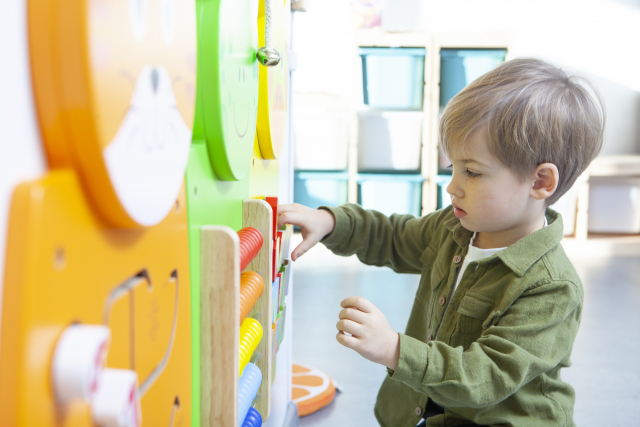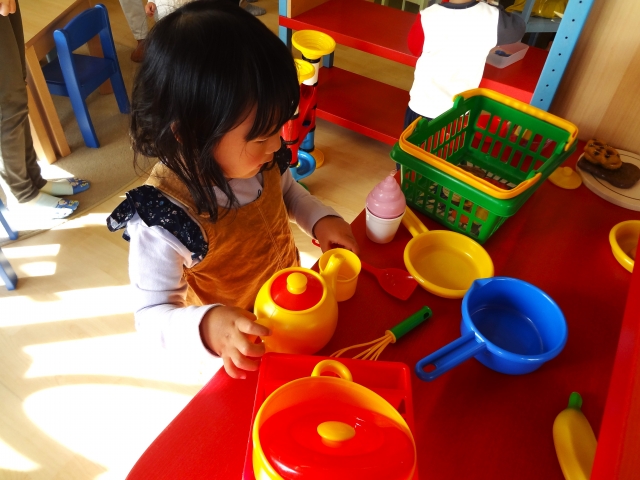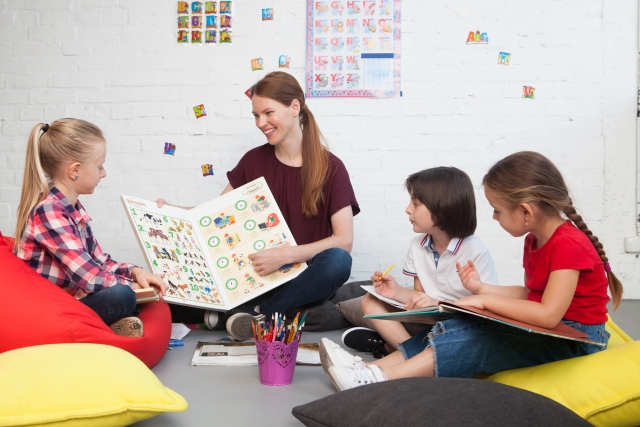“Can foreigners use daycare in Japan?”
“I’m worried about the language barrier—is it safe to leave my child?”
If you’re an expat family who has just started raising children in Japan, you’re not alone.
Many foreign families, especially new expat families, often feel overwhelmed by the language barrier and cultural differences.From understanding how to find suitable daycare and how to prepare for each day, there may be a lot to learn.
This article is here to support foreign families living in Japan through providing useful information on how to find daycare that suits their needs, especially those looking for English-speaking support.
We hope this helps you find the right fit for your child.
- 1 Common Challenges Expat Families Face When Raising Children in Japan
- 2 Can Foreigners Use Daycare in Japan?
- 3 Do Teachers Speak English at Japanese Daycares? Language Realities for Foreign Parents
- 4 What to Look for in a Daycare in Japan for Foreign Families
- 5 Introducing Little Hug: An English Babysitter Alternative in Japan
- 6 Final Thoughts: Finding the Right Daycare in Japan for Foreigners
Common Challenges Expat Families Face When Raising Children in Japan

Many parents may feel overwhelmed when raising their children in Japan and may not know where to start besides cultural differences and the language barrier.
In the next part, let’s take a closer look at some of the difficulties faced by those seeking daycare in Japan for foreigners.
1. Language Barriers
Communication is often the biggest hurdle not only in daily life, but also at daycare.
From receiving notices from the daycare to attending parent-teacher meetings or interacting with other parents, there may be situations where communication in Japanese does not go smoothly. Furthermore, official documents and daycare policies may contain formal or technical language, making them especially hard to understand.
Thus, many parents feel that the “language barrier” is a major challenge when raising children in Japan.
2. Limited Access to Daycare related Information
Most daycare-related information in Japan is only available in Japanese. Information on municipal websites and the internet rarely provide English translations.
Because of this, many foreign parents rely on social media or local expat groups when searching daycare.
However, the information available through these channels is often limited, and many parents may feel uncertain about its accuracy or trustworthiness.
3. Unfamiliar Daycare Systems and Procedures in Japan
Japan’s daycare system includes unique rules —from application period, required documents, and selection criteria.
For example, public daycare centers often use a point-based selection system to prioritize families based on their circumstances.
Even for Japanese parents, navigating this process can be confusing—so it’s easy to see how foreign families may feel lost.
In addition, daily expectations such as preparing your child’s belongings, drop-off and pick-up routines, or participating in seasonal events may differ from your home country’s customs, leading to even more uncertainty.
4. Lack of Support and Community
If you’re new to Japan and don’t speak the language fluently, forming social connections—like mom friends or finding someone to ask for help—can be tough.
Even though some municipalities offer multilingual support, it can be difficult to discover or access these services unless you already know where to look.
To raise children with confidence in Japan, it’s important to not only find a trustworthy daycare, but also build a supportive network in the community where you can ask questions and feel understood.
Can Foreigners Use Daycare in Japan?

Yes, foreigners can use daycare in Japan—as long as they have a valid residence status and are officially registered in the country.
Because Japanese daycare centers are designed to support all children living in the local community, regardless of nationality.
However, specific requirements and procedures vary depending on the city or ward (known as shi, ku, or cho in Japanese). It’s always best to check with your local city office or visit their website for up-to-date information in your area.
When exploring daycare in Japan for foreigners, it’s helpful to understand the main types of daycare facilities available. These are generally divided by two categories: public vs. private, and licensed vs. unlicensed.
Types of Daycare in Japan
| Item | Licensed Public Daycare (Ninka, Public) | Licensed Private Daycare (Ninka, Private) | Unlicensed Daycare (Ninkagai) |
| Operated by | Local governments (municipalities) | Social welfare organizations or companies | Private companies or individuals |
| Fees | Based on household income | Based on household income | Set individually by each facility (often higher) |
| Ease of Enrollment | Varies by area (may have long waitlists) | Varies by area (may have long waitlists) | Generally easier to enroll |
| Education & Care Content | Follows national standards | Follows national standards with additional unique programs | Varies by facility |
| Hours & Flexibility | Regulated standard hours | Regulated, often with flexible options | Highly flexible (e.g., evening or weekend care) |
Choosing the right type of daycare depends on your family’s budget, lifestyle, and needs. It is advisable to choose daycare that suits the family situation. .
Do Teachers Speak English at Japanese Daycares? Language Realities for Foreign Parents

If you’re looking into daycare in Japan for foreigners, one common question is: “Will they speak English?”
At most Japanese daycare centers, staff may understand basic English greetings or simple words. However, when it comes to detailed communication or more technical contents, language can quickly become a barrier.
If neither you nor your child speaks Japanese, this can lead to anxiety and inconvenience. For example, misunderstandings may arise when explaining symptoms of illness or injuries, or communicating allergies or special dietary restrictions without Japanese.
If English communication is a top priority for your family, consider exploring the unlicensed daycares (Ninkagai) that advertise English-friendly staff, international preschools or English-speaking babysitters or nannies.
What to Look for in a Daycare in Japan for Foreign Families

When looking for the right daycare in Japan for foreigners, it’s important to consider several key points to ensure your child’s safety and comfort.
Here are four key points to consider when finding a daycare for foreign parent in Japan.
1. Are There English-Speaking Staff?
One of the most important factors is whether there are staff members who can communicate in English.
This helps ensure smooth communication for everything from the enrollment process to daily updates about your child’s health, behavior, or activities.
When visiting a facility, don’t hesitate to ask if English support is available or if they can provide documents and notices written in English.
2. Does the Daycare Embrace Multicultural Values?
When choosing daycare, it is also important to ensure that daycare pays attention to children from diverse cultures and backgrounds which make them feel safe and happy.
For example, some daycare centers hold events aimed at cross-cultural understanding or routinely incorporate English picture books and songs. The children’s artwork on the walls may also reveal the childcare’s policies and initiatives.
Daycares that respect different cultures and customs and try to understand diversity can be a welcoming place for foreign families.
3. Is the Daycare Flexible About Your Needs?
Foreign families may have different routines or dietary needs due to cultural or religious reasons.
Ask specific questions such as flexible lunch options and pick-up times.
Furthermore, check in advance how flexible the daycare is regarding what items you can bring and how they handle parental participation in events.
4. Do They Have Experience with Foreign Families?
Daycares that have previously experienced welcoming foreign children are likely to have a better understanding of language and cultural differences and be more attuned to the concerns and challenges of foreigners.
You can ask the following questions such as:
“Are there any foreign families currently enrolled?’
“How have they dealt with them in the past?”
If there are children from the same country or who speak the same language, it helps children communicate more smoothly with each other and make the daycare a more comfortable and reassuring environment for them.
Introducing Little Hug: An English Babysitter Alternative in Japan

If you feel uneasy about enrolling your child in a Japanese daycare, why not consider an alternative such as Little Hug’s English babysitter service?
With Little Hug, your child can spend time at home with a native or bilingual babysitter who offers full care and support in English.
In addition to daycare pick-ups and drop-offs, Little Hug provides support in English for play, learning, and daily routines. This naturally helps children improve their English skills while easing the concerns of parents.
Whether you’re looking for the right daycare in Japan for foreigners, or hoping to supplement your current daycare with an English-speaking environment, our services are flexible to meet various needs.
At Little Hug, we’re here to support international families raising children in Japan —making life a little easier, and a lot more comfortable.
Final Thoughts: Finding the Right Daycare in Japan for Foreigners

For many foreign families raising children in Japan, finding the right daycare remains a challenge. Language barriers and cultural differences often make it difficult to gather information or communicate with caregivers confidently.
While foreigners are generally eligible to use Japanese daycare services, most facilities have limited English support.
When choosing a daycare in Japan for foreigners, be sure to check for English-speaking staff, commitment to multicultural understanding, flexibility and experience in welcoming foreign families.
In addition to daycare options, consider using English-speaking babysitting services such as Little Hug.
If you have particular concerns about language barriers or need a more flexible childcare arrangement, a service like Little Hug that offers personalised attention is a suitable option.
Create a nurturing, comfortable environment for your child and peace of mind for yourself—with Little Hug.

